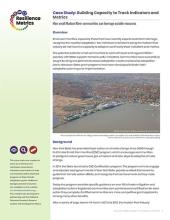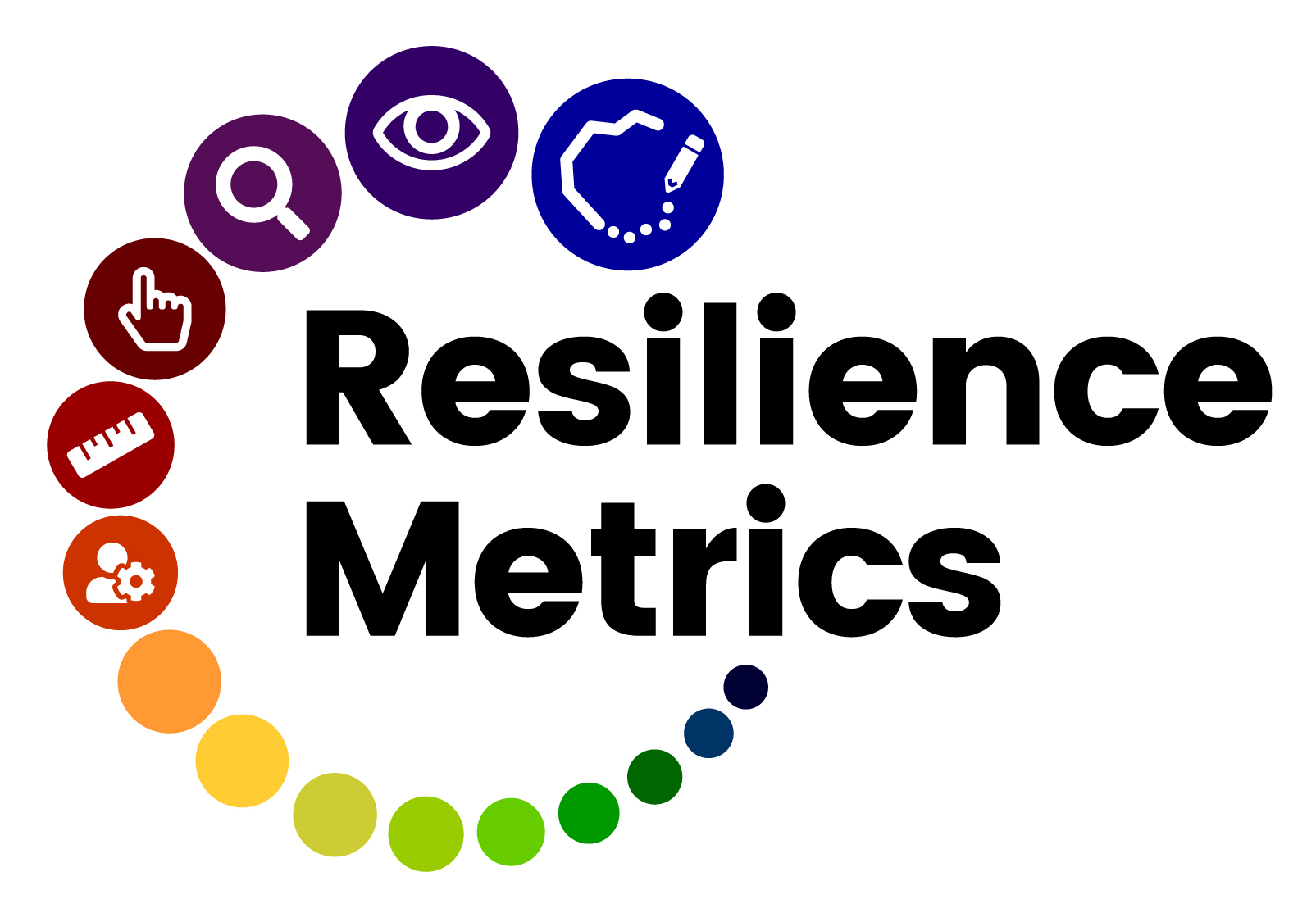
Successful climate adaptation planning calls on communities to define success and identify metrics to track progress toward a climate resilient future. Building on their experiences hosting workshops as part of the Successful Adaptation Indicators and Metrics effort, a 2018 catalyst project team has developed a planning and facilitation toolkit, Resilience Metrics. The toolkit includes case studies as well as a suite of facilitation tools and job aids to advance conversations around successful adaptation
About this resource
These case studies are part of the Resilience Metrics toolkit, which helps communities define and track their climate adaptation progress. These examples profile specific instances of local implementation of resilience metrics and highlight key lessons learned.
Case Studies
Case studies illustrate one or more of the six steps in the process to develop and use resilience indicators and metrics. This overview shows where case examples fit within this process. A full list with links to case examples is available below.
- Building Capacity to Track Indicators and Metrics - A case study from Hudson River National Estuarine Research Reserve describing how small New York communities can leverage outside resources to support climate adaptation planning and implementation.
- From Visioning Success to Tracking Progress - A case study from Kachemak Bay National Estuarine Research Reserve describing a climate resilience workshop series to build the adaptive capacity of Alaska coastal communities that informed an update to the Kenai Peninsula Borough ’s Comprehensive Plan.
- Using Adaptation Indicators in Day-to-Day Management - A case study from Tijuana River National Estuarine Research Reserve describing how existing management frameworks can be leveraged to track progress toward resilience.
- Using Existing Indicator Tracking Systems for Adaptation - A case study from Jacques Cousteau National Estuarine Research Reserve that describes how New Jersey assessed progress on preparedness after Hurricane Sandy.
- Annual “Better Safe Than Sorry ” Workshop Series Inspires, Tracks Action - A case study from Wells National Estuarine Research Reserve describing an effort to track and share local government actions in ten Southern Maine communities to prepare for coastal storms, sea-level rise, and extreme weather events.
